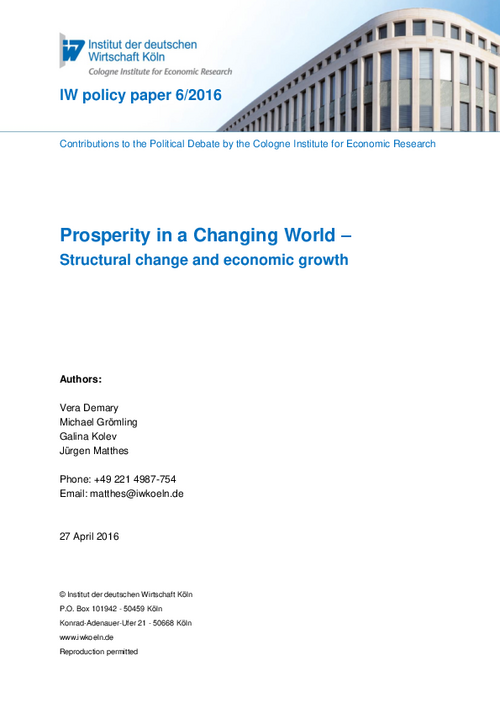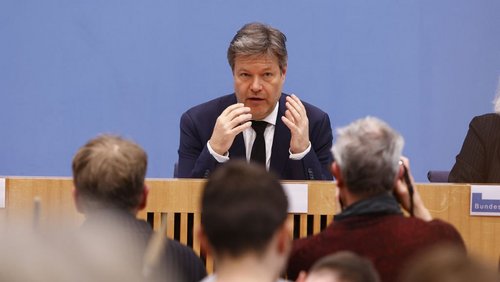Structural change is pervasive and affects economies worldwide – some for the worse, many for the better. In order to reap the benefits promised by structural change, many countries have tried to strengthen their service sectors. A new study presented by the Cologne Institute for Economic Research (IW) shows: They are playing their cards wrong.
Manufacturing or services: What trumps?
Structural change leads to higher growth rates. For many years, it has been equated with the increasing importance of the service economy, leading governments to focus on fostering the sector. Yet, while an IW study has confirmed the positive link between the drivers of structural change and economic growth with a thorough empirical analysis, the data shows that a superior economic model – one that creates higher growth and prosperity per se – does not exist. A clear-cut link between the share of the service sector and per capita income, for instance, is missing. Services don’t trump industry. But it’s not the other way around, either. It is not what you do, but how you do it.
Accordingly, how production is organised and whether it is supported by the right economic framework matters more than the mere sectoral output. Open, interconnected, and flexible economies exploit the gains from the division of labour better than highly regulated ones. Making products and production processes more knowledge-intensive can create competitive advantages. These features drive structural change and growth.
Based on comparing 43 indicators for more than 20 advanced economies, the IW study shows that not all countries fare equally well embracing the drivers of structural change. While Ireland’s markets, for example, are very open and interconnected, the country lags behind when it comes to education, research and development. Germany performs well concerning interconnectedness, innovation and knowledge, yet scores only moderately with regard to globalisation. While there is no country performing well on all levels, several crisis-driven European countries, such as Italy, France and Spain, score badly in all categories.
“Many governments fail to sufficiently support their businesses in meeting the challenges and seizing the opportunities of structural change”, says IW economist Jürgen Matthes. The same holds true for European policy makers: They need to secure open, competitive and interconnected European markets. Finalising TTIP, providing cross-border infrastructure, fostering the Single Market in general and working particularly on completing the Digital Single Market are the key elements in this regard. “The negotiations surrounding the Privacy Shield Agreement, for instance, took far too long. In the meantime, European companies are operating in a legal limbo”, says IW economist Vera Demary. This, the IW study concludes, causes an unnecessary burden on their competitiveness in a changing world.

Prosperity in a Changing World


Deindustrialisierung: Aktuelle Entwicklungen von Direktinvestitionen
Obwohl sich die Situation bei den Energiekosten nach den Turbulenzen der letzten Jahre wieder etwas entspannt hat, sehen wir weiterhin hohe (Netto-)Abflüsse von Direktinvestitionen aus Deutschland. Das deutet darauf hin, dass die Perspektiven am Standort ...
IW
Konjunktur- und Struktureffekte von Energiekrisen
Die aktuelle wirtschaftliche Lage weist Parallelen zur Situation vor 50 Jahren auf. Auch Mitte der 1970er Jahre stand die deutsche Wirtschaft aufgrund eines Energiepreisschocks vor großen Herausforderungen.
IW
